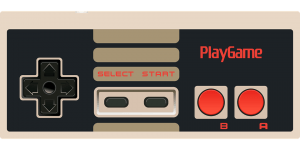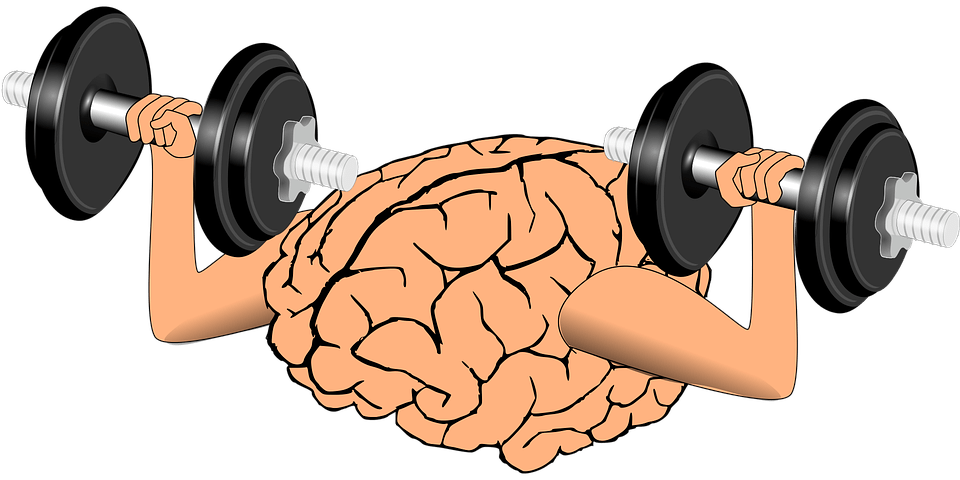If you are seeking justification for playing video games, your search has ended! What if the answer lies in the fact that playing video games is similar to a brain triathlon? Imagine if you will, a place where you can play video games and improve your memory simultaneously. Currently, some games purposefully (and inadvertently) target parts of our brain which help train it and improve our memory.
When we think of video games, many think of genres such as sports, action, and MMO (massively multiplayer online game). Some would argue that playing those games provides no benefit to the individual. However, recent studies suggest that playing the right game will provide cognitive improvements such as improving your memory.
Video games activate the hippocampus
 When a person is playing a video game, their hippocampus activates. This specific part of your brain controls human learning and memory. Each time you activate it, you are working out your brain. When you work out your muscles, they get stronger, similarly, your brain develops the more we thoughtfully activate it.
When a person is playing a video game, their hippocampus activates. This specific part of your brain controls human learning and memory. Each time you activate it, you are working out your brain. When you work out your muscles, they get stronger, similarly, your brain develops the more we thoughtfully activate it.
As we age, our memory declines, but don’t feel hopeless as there is a new frontier to gain positive brain boosts. Maybe you had memory loss due to injury or illness, or maybe the aging effects are catching up to you. If those do not fit you specifically, maybe you’re interested in improving your learning abilities through different pathways. Activating your hippocampus is the right thing to do for yourself.
Over the years researchers have been developing games aimed specifically at improving your cognitive abilities. The latest craze is cognitive training, where the participant plays mini-games or completes tasks to help improve overall memory, but cognitive training isn’t the only way to get the best results. Games like “Cut the Rope” improve in executive function tasks: flanker, inhibition, and task switching and improves skills that that enable us to plan, focus attention, remember instructions, and juggle multiple tasks successfully. Tetris helps with enhanced mental rotation skills and 3D based games activate your hippocampus.
3D vs 2D

Three-dimensional games, in particular, have been outperformingtwo-dimensional games when it comes to hippocampus-associated behaviors. These games have helped improve hippocampus associated behaviors by up to 12%, which is significant given the difficulties some have in memory retention. Both average video games and brain training games can potentially improve your memory, but each does so differently.
Your average game such as Mario tends to help you improve memory through completing tasks, navigating the maps and recalling parts of the missions. “Action video games, such as Halo, can speed up decision making but the current work finds that real-time strategy games can promote our ability to think on the fly and learn from past mistakes.” “Those [who play] StarCraft were quicker and more accurate in performing cognitive flexibility tasks, than those who played The Sims.” However, games like “Brain Age” or “Cut the Rope” are puzzle-like games helping improve your memory in ways similar to crosswords or Sudoku.
Games work to improve brain function because they provide immediate positive reinforcement, which subsequently occurs when a task is completed. When you receive the intended reward, you feel good about the task. In order to continue this feeling, you progress resulting in more positive reinforcements.
Intrinsic motivation allows us to learn more
Furthermore, we engage in most games because of intrinsic motivation, which is the act of doing an activity for its inherent satisfaction rather than for some other reason. Games provide fun and a challenge and as human beings, we thrive in those two areas. When learning is fun to us, we gravitate to learn more. When we learn through a game, the skill/information we learn is more likely to be retained in our long-term memory. Best of all, we are also likely to continue trying to improve the skill.
In addition, games work because they decrease stress and “In the short term, acute stress prevents memory storage” which hinders your learning abilities. “So when our stress response (aka fight-or-flight) is activated, stress hormones actually turn off the parts of the brain that allow us to focus attention, understand ideas, commit information to memory and reason critically.” Therefore, the lower your stress, the better you concentrate on both skill development and the task. Since stress decreases memory retention, then you will likely stop wanting to learn with activities that cause stress. Luckily, games are generally enjoyable and when you have fun you are at your peak performance in skill development.
Get in the flow
As you play games you enter “the zone” also known as “flow”. Many times flow manifests itself when you participate in activities you genuinely like or enjoy. Take for example a Mario game. You have to navigate the map and meet certain criteria to progress through the game. While you move, pay close attention to the surroundings in order to complete the level task. Combined with your motivation, a person begins to feel a sense of timelessness and enters the zone. Luckily, every enjoyable game has the potential to get you, the user, into the zone.
While it’s great to know what it takes to be in the zone we must look to see any benefits. According to Very Well, “Flow can lead to improved performance… in a wide variety of areas including teaching, learning, athletics, and artistic creativity. Flow can also lead to further learning and skill development. Because the act of achieving flow indicates a substantial mastery of a certain skill, the individual must continually seek new challenges and information in order to maintain this state.” Most importantly, the activity must have clear goals and we must also enjoy it. Even if it’s difficult to flow, you must practice with patience, so you too will be able to flow.
Balance Lifestyle

In the end, it’ll depend on the skill you personally intend to improve on, or if you are a therapist, the skill you intend your patients to practice. You should complete each activity in moderation and you should also practice living a balanced life. The optimal time for practicing this skill is no more than an hour a day. So for now, pick up a game and improve your memory.
